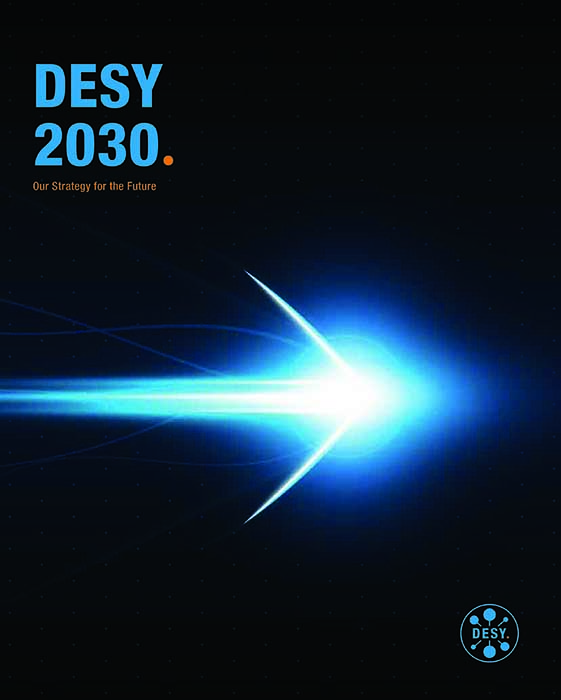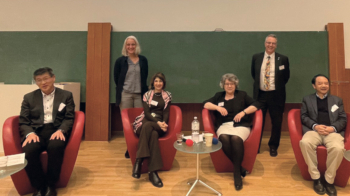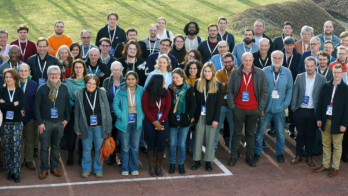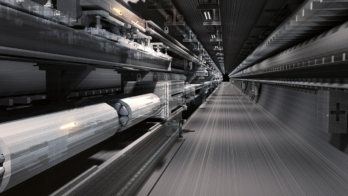
On 20 March, the DESY laboratory in Germany presented its strategy for the coming decade, outlining the areas of science and innovation it intends to focus on. DESY is a member of the Helmholtz Association, a union of 18 scientific-technical and medical-biological research centres in Germany with a workforce of 39,000 and annual budget of €4.5 billion. The laboratory’s plans for the 2020s include building the world’s most powerful X-ray microscope (PETRA IV), expanding the European X-ray free-electron laser (XFEL), and constructing a new centre for data and computing science.
Founded in 1959, DESY became a leading high-energy-physics laboratory and today remains among the world’s top accelerator centres. Since the closure of the HERA collider in 2007, the lab’s main accelerators have been used to generate synchrotron radiation for research into the structure of matter, while DESY’s particle-physics division carries out experiments at other labs such as those at CERN’s Large Hadron Collider.
Together with other facilities on the Hamburg campus, DESY aims to strengthen its role as a leading international centre for research into the structure, dynamics and function of matter using X rays. PETRA IV is a major upgrade to the existing light source at DESY that will allow users to study materials and other samples in 100 times more detail than currently achievable, approaching the limit of what is physically possible with X rays. A technical design report will be submitted in 2021 and first experiments could be carried out in 2026.
Together with the international partners and operating company of the European XFEL, DESY is planning to comprehensively expand this advanced X-ray facility (which starts at the DESY campus and extends 3.4 km northwest). This includes developing the technology to increase the number of X-ray pulses from 27,000 to one million per second (CERN Courier July/August 2017 p18).
As Germany’s most important centre for particle physics, DESY will continue to be a key partner in international projects and to set up an attractive research and development programme. DESY’s Zeuthen site, located near Berlin, is being expanded to become an international centre for astroparticle physics, focusing on gamma-ray and neutrino astronomy as well as on theoretical astroparticle physics. A key contribution to this effort is a new science data-management centre for the planned Cherenkov Telescope Array (CTA), the next-generation gamma-ray observatory. DESY is also responsible for building CTA’s medium-sized telescopes and, as Europe’s biggest partner in the neutrino telescope IceCube located in the Antarctic, is playing an important role in upgrades to the facility.
The centre for data and computing science will be established at the Hamburg campus to meet the increasing demands of data-intensive research. It will start working as a virtual centre this year and there are plans to accommodate up to six scientific groups by 2025. The centre is being planned together with universities to integrate computer science and applied mathematics.
Finally, the DESY 2030 report lists plans to substantially increase technology transfer to allow further start-ups in the Hamburg and Brandenburg regions. DESY will also continue to develop and test new concepts for building compact accelerators in the future, and is developing a new generation of high-resolution detector systems.
“We are developing the campus in Hamburg together with partners at all levels to become an international port for science. This could involve investments worth billions over the next 15 years, to set up new research centres and facilities,” said Helmut Dosch, chairman of DESY’s board of directors, at the launch event. “The Zeuthen site, which we are expanding to become an international centre for astroparticle physics, is undergoing a similarly spectacular development.”





